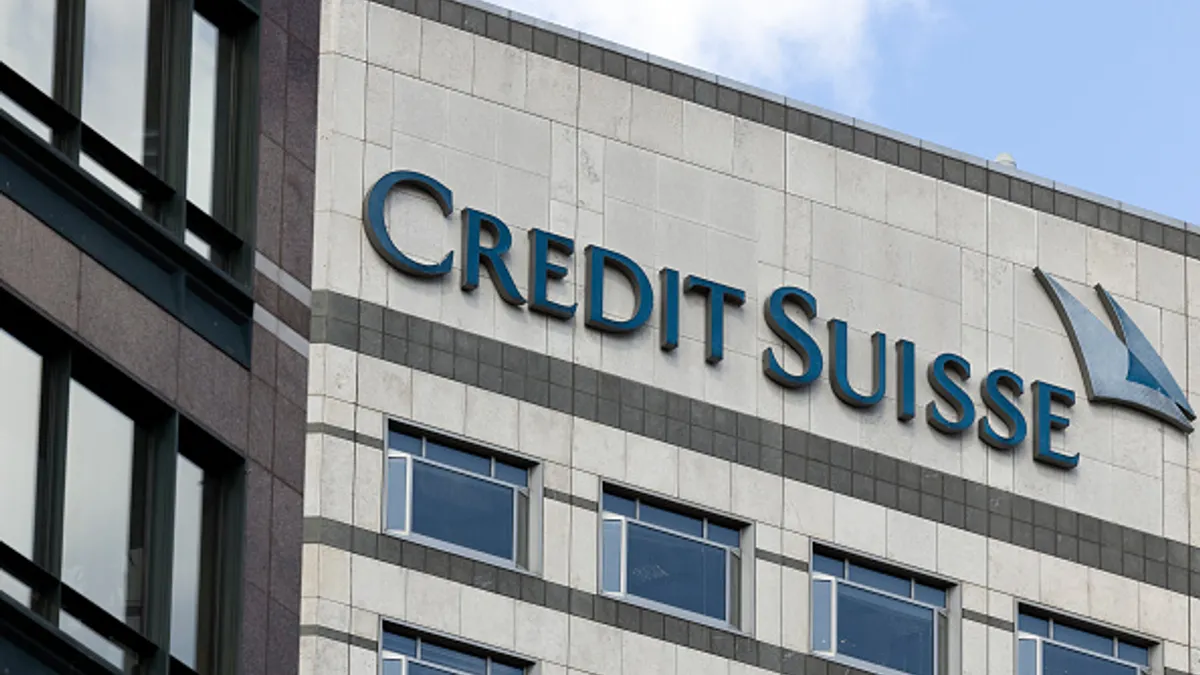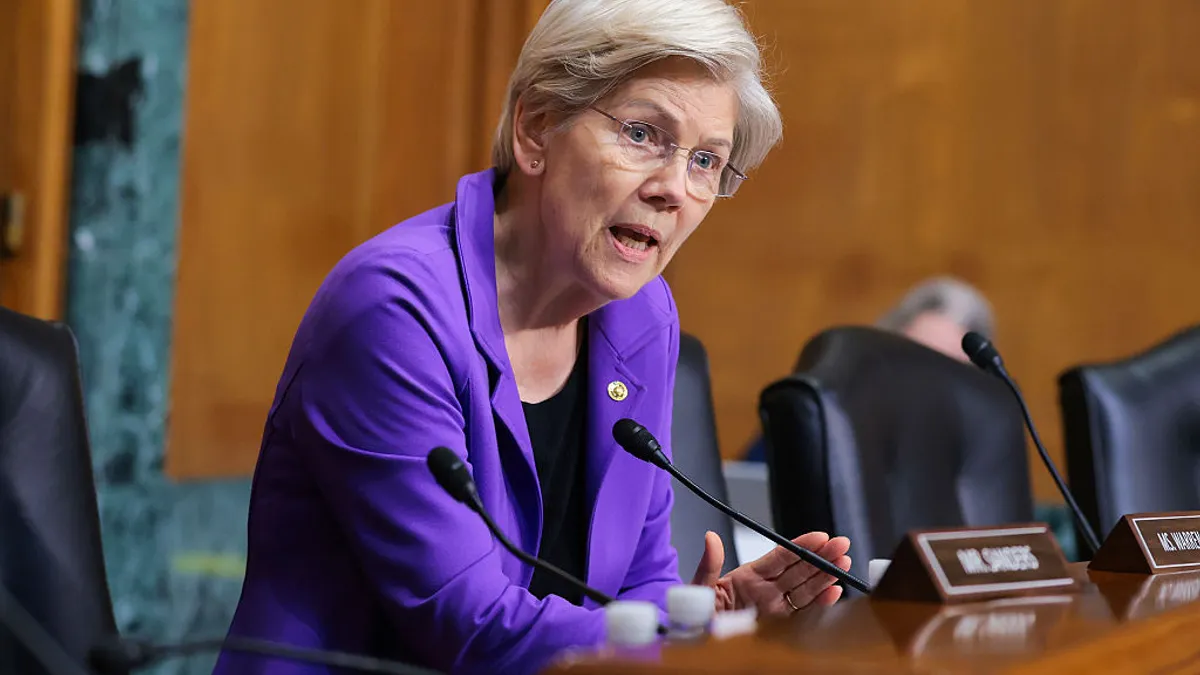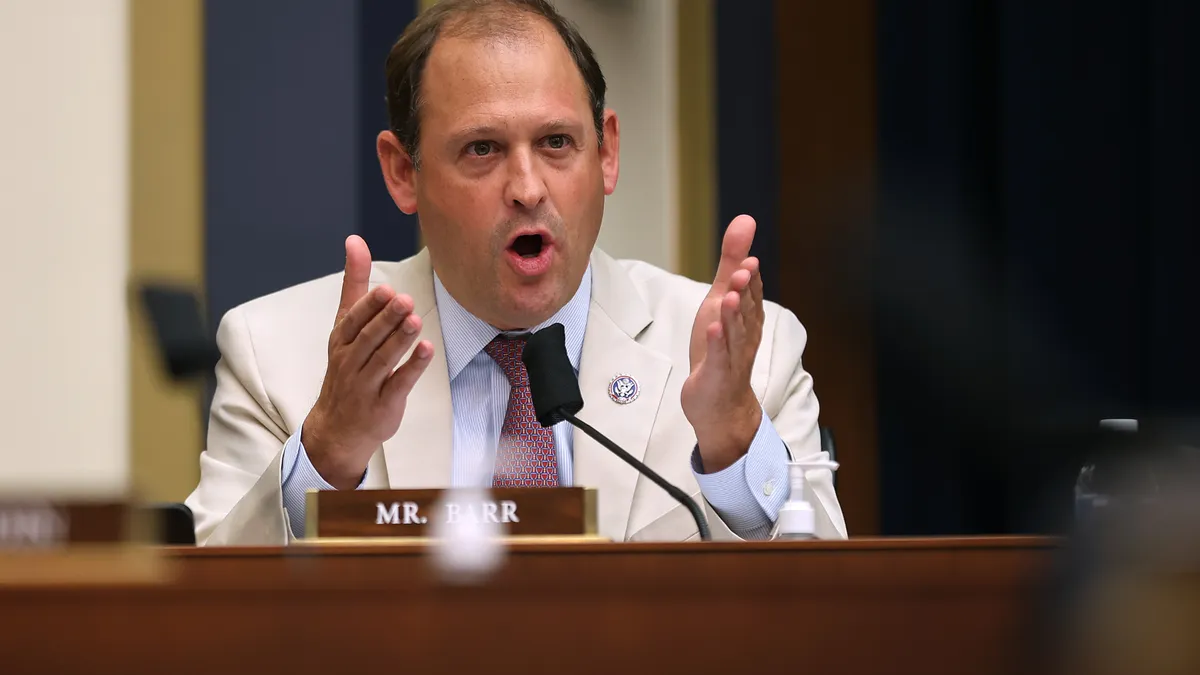New Carlyle Group CEO Harvey Schwartz’s potential $180 million payday made it clear last week: Former big-bank proteges are having a resurgence.
But one event doesn’t make a trend. So here’s further fodder for the argument: Credit Suisse on Thursday agreed to pay $175 million to buy Michael Klein’s investment-banking boutique (though the value of the deal could stretch to $210 million).
Schwartz’s compensation agreement could be seen as vindication of sorts. Schwartz retired from Goldman Sachs in 2018 after serving roughly a year as co-president alongside David Solomon, who ultimately would succeed Lloyd Blankfein as Goldman’s CEO. Schwartz had spent more than 20 years at Goldman, including a stint as CFO and another running the bank’s trading arm.
By The New York Times’ account, Schwartz lost out on the top job at Goldman in part over his harsh treatment of subordinates. In what may sound like a Hollywood dramatization of a midlife crisis, Schwartz reportedly moved to San Diego and spent much of the past five years practicing guitar, karate, biking and meditating — although rumors surfaced in 2019 that Schwartz was in talks with Wells Fargo to take the top job there.
When he appeared last Monday in a virtual meeting with Carlyle’s employees, Schwartz laid out the mandate he was given: Expand the company’s business. But, an attendee told The New York Times, Schwartz added: “You want to have some fun. And growth is fun.”
Breaking down the package
It also can be lucrative. Schwartz’s five-year, $180 million compensation package includes up to $108 million in performance-based stock awards to be paid in annual installments if Carlyle’s share price meets predetermined targets that are increasingly difficult over time, the company indicated in a filing. For Schwartz to get the full amount, Carlyle’s stock value would have to more than double by 2028, and the company would have to generate shareholder returns at a rate higher than that of 60% of companies in the S&P 500 index every year.
Schwartz is also receiving $72 million in restricted stock awards that vest between 2024 and 2027. He’ll also receive a $1 million annual salary and a target annual bonus of $3 million (though that could stretch to $6 million, the company said).
If Wall Street is petty — and maybe it is — Schwartz’s compensation deal has quite the upside in comparison to that of his onetime Goldman rival, Solomon. Goldman cut Solomon’s 2022 pay by 28.6% to $25 million, and some partners at the bank are reportedly so frustrated they’ve considered taking their concerns to the board. Solomon is, however, still in line to receive a one-time award that could net him $30 million in 2026 if Goldman’s stock maintains its value.
To an outsider, Schwartz’s five-year waiting game to take a CEO role may appear a shrewd move to ensure he receives any vested compensation that he’s due from Goldman. That bank has a recent history of clawing back unvested compensation from alums who may have fallen out of favor. This is not to say Schwartz has, or that Solomon, as Goldman’s board chair, would sign off on such a clawback. But it could happen — if Wall Street were petty.
As it turns out, Carlyle agreed to pay Schwartz up to $19.5 million to replace Goldman stock grants he would have to forfeit.
Schwartz’s payday could look like a bargain to Carlyle. The company’s previous CEO, Kewsong Lee, had sought a $300 million deal last year before contract negotiations broke down, and Lee abruptly left in August, according to the Financial Times.
Schwartz was one of nearly a dozen Wall Street executives whose names were floated in connection with the Carlyle opening. At least two other Goldman vets were among them, according to The New York Times: former President Gary Cohn and current Chief Operating Officer John Waldron. Citi CFO Mark Mason, JPMorgan asset- and wealth-management chief Mary Erdoes and former Morgan Stanley COO Jonathan Pruzan were reportedly among other targets.
Blankfein stood out as someone who gave Schwartz a vote of confidence. He told The Times that Schwartz came through on “tough jobs at tough moments” and that Carlyle is “lucky to get someone of his quality.”
Michael Klein’s second act
If Schwartz’s five years seem a long wait to launch a Wall Street career’s second act, look at Credit Suisse’s Michael Klein. A onetime protege of former Citi CEO Sandy Weill, Klein left the bank in 2008 and founded M. Klein & Co., which advised chief executives, corporations and governments on major transactions. Those included Barclays’ purchase of Lehman Brothers, a mining-sector deal between Glencore and Xstrata, and work on Saudi Aramco's initial public offering. The latter made Klein a known quantity with the Saudi National Bank, now a major stakeholder of Credit Suisse.
Credit Suisse’s $175 million purchase of M. Klein & Co. is hardly a surprise. The embattled Swiss bank had telegraphed in October that it would spin off its investment bank under a revived CS First Boston banner and put it in Klein’s hands. For his part, Klein stepped down from Credit Suisse’s board. The bank on Thursday made Klein its CEO of banking, CEO of the Americas, and designated CEO of CS First Boston.
Ulrich Körner, Credit Suisse’s CEO, called the acquisition an “exceptional opportunity” and a “strategic way to create shareholder value.”
“I am confident that CS First Boston will thrive under [Klein’s] leadership,” Körner said.
The seller in the M. Klein deal will get cash, a convertible note, and warrants that will become equity in CS First Boston. The transaction is set to close in the first half of this year, with the spinoff or public offering expected by the end of 2024.
The deal could make Klein comfortably wealthy. The investment bank is set to be a partnership model, with key employees having a level of ownership, according to Bloomberg.
Throughout discussions of how to combine M. Klein with Credit Suisse, the Swiss bank’s chair, Axel Lehmann, has said the board was “very mindful of conflicts of interest.” Klein reportedly abstained from decisions in which he had a personal interest. And Credit Suisse called on Deutsche Bank to provide an opinion on the fairness of the plans, according to the Financial Times.
Credit Suisse’s board allegedly approached Klein just days before the plan was announced, people with knowledge of the move told the Financial Times. Klein was not seeking to leave his boutique, and the firm was not for sale, a person close to the situation said in October. Credit Suisse reportedly proposed the merger so Klein could avoid running two broker-dealers.
Klein’s deal is not unheard of. Blackstone, in 2014, spun off its advisory business and merged it with a boutique run by former Morgan Stanley rainmaker Paul Taubman. Taubman was given nearly $100 million in shadow equity for the boutique — about 20% of outstanding stock, the Financial Times reported.






















